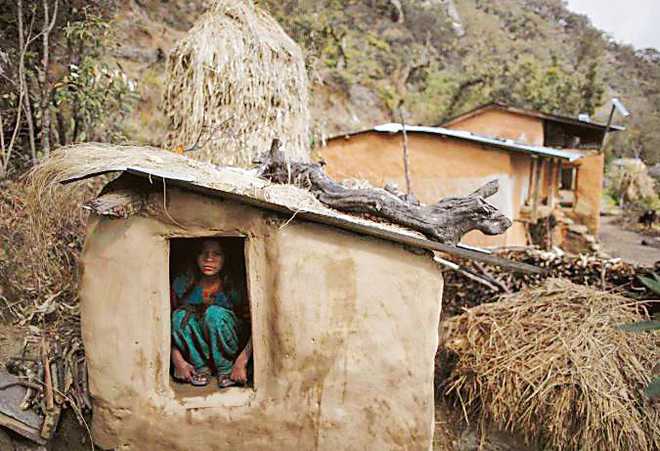Kathmandu: A 21-year-old Nepali woman has died reportedly due to suffocation during her stay in a windowless hut as part of a banned practice that considers women untouchable during menstruation, according to a media report. The incident happened in Nepal’s remote Doti district when Parwati Bogati was sleeping alone in a secluded hut due to menstruation and had lit a fire to keep the hut warm. When Bogati did not wake up till late next morning, her mother-in-law went to the hut to check her but found that she had died. In January, a 35-year-old woman and two of her sons died of suffocation after they spent a night in a windowless hut. PTI
WW1 grenade found in French potato shipment
Hong Kong: A German World War I hand grenade was found among a shipment of French potatoes imported for a Hong Kong crisp factory. The device was safely detonated after it was discovered at the Calbee snacks factory on Saturday. “The grenade was in an unstable condition because it has been previously discharged but failed to detonate,” Superintendent Wilfred Wong Ho-hon said. The police detonated it on site with a police video showing bomb disposal officers packing the grenade in a drainage channel at the factory before blowing it up. The grenade is believed to have been left in a trench during World War I and accidentally gathered up with potatoes planted a century later in the former battlefield. AFP
Decoded: Why do you feel sleepy when sick?
New York: Researchers, including one of Indian-origin, have found a gene that acts as a direct link between illness and the need for more sleep. In a study of over 12,000 lines of fruit flies, researchers from the University of Pennsylvania found the single gene, called nemuri that increases the need for sleep. The nemuri protein fights germs with its inherent antimicrobial activity and it is secreted by cells in the brain to drive prolonged, deep sleep after an infection. “While it’s a common notion that sleep and healing are tightly related, our study directly links sleep to the immune system and provides a potential explanation for how sleep increases during sickness,” said Amita Sehgal, professor at the varsity. IANS
Unlock Exclusive Insights with The Tribune Premium
Take your experience further with Premium access.
Thought-provoking Opinions, Expert Analysis, In-depth Insights and other Member Only Benefits
Already a Member? Sign In Now










